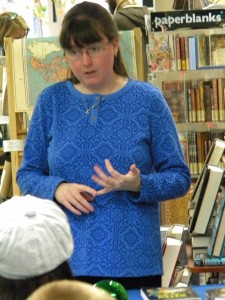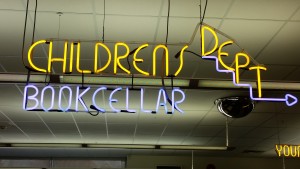 At a speech to a writer’s group on Saturday, I got asked the million-dollar question: since today’s authors are expected to shoulder most of the marketing load, wouldn’t self-publishing make the most sense? I answered that it was a matter of personal preference, but the question got me thinking: Are modern authors really expected to shoulder MORE of the marketing load than in the past, or is the burden simply HEAVIER today?
At a speech to a writer’s group on Saturday, I got asked the million-dollar question: since today’s authors are expected to shoulder most of the marketing load, wouldn’t self-publishing make the most sense? I answered that it was a matter of personal preference, but the question got me thinking: Are modern authors really expected to shoulder MORE of the marketing load than in the past, or is the burden simply HEAVIER today?
I know we all like to wax nostalgic about the good old days when the publisher would do ALL the marketing and the author would just churn out more books. It’s a wonderful dream, but I’m not sure that was ever the reality, unless you were a top-flight author. Most mid-list and lower authors had to do a lot of the hustling themselves.
So I’m not sure that we’re being asked to do MORE (percentage-wise) of the marketing for our books. I think the real problem is that the percentage of marketing we do is HEAVIER than it was back in the halcyon years.
 Back before the internet, marketing took a very specific shape—in-person events, usually at bookstores or libraries or conferences. Sometimes schools if you wrote children’s books. The occasional interview, if you were lucky. These events could be intense, and while they occurred they consumed the entirety of your time. But they were finite. Even a multi-day conference had a defined beginning and end. A writer could look at their calendar and carve out precisely when she would be marketing, and when she could forget about marketing and just write. In other words, there was plenty of “down time” in the marketing schedule.
Back before the internet, marketing took a very specific shape—in-person events, usually at bookstores or libraries or conferences. Sometimes schools if you wrote children’s books. The occasional interview, if you were lucky. These events could be intense, and while they occurred they consumed the entirety of your time. But they were finite. Even a multi-day conference had a defined beginning and end. A writer could look at their calendar and carve out precisely when she would be marketing, and when she could forget about marketing and just write. In other words, there was plenty of “down time” in the marketing schedule.
Now, there is no down time. Not only do we have in-person events, but we are expected to be online—Facebook, Twitter, Pinterest, LinkedIn, Goodreads, Google+, YouTube, Instagram, SnapChat, Tumblr… The list seems endless. And we’re asked to blog and maintain a website, too. In other words, we can never put down the marketing load. We are available 24/7 to our readers.
So that’s why I think perhaps authors today don’t actually bear MORE of the marketing load—the majority of marketing was always squarely on the author’s shoulders. Today, we have so many more channels to use for marketing that the load has become exponentially HEAVIER than it was. There is no stepping away from it. We are “on” all the time. We weave marketing into our daily lives. There are no long stretches of concentrated writing time where we can put marketing from our minds.
Admittedly, I got published well after social media and the internet became fixtures of our ever-connected society. For those of you who got published back in “the good old days,” what do you think? Are we being asked to lift more of the marketing load—or is there simply more load to lift?


Summer’s End
This time next week my child will be back in school, and I will have 6 hours a day to get work done in peace.
Of course, it never ends up being 6 free hours. I do errands and sometimes chores, and other things that require concentrated time. And naps. I admit to naps.
However, it will be a relief to have some space to stretch, some flexibility. Summer is a time of squeezing writing into the nooks and crannies of life. While this may work well for some writers, my brain struggles to work that way, and it leaves me frazzled and exhausted.
I love the time I get with my daughter during the summer. I enjoy the family adventures when we travel. The slower pace of life is a welcome change from the often-hectic school year. But I confess to relief in getting my “me time” back.
I have several projects I want to work on, so my ambitions are high, as they tend to be. Sometimes unrealistically high. But for the first time in several years, I feel like I might be up to the task. We shall see what the school year brings for me.
Does the end of summer bring you more or less time to write?